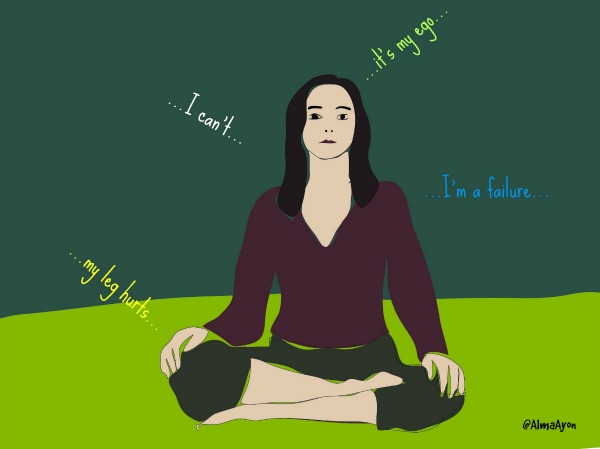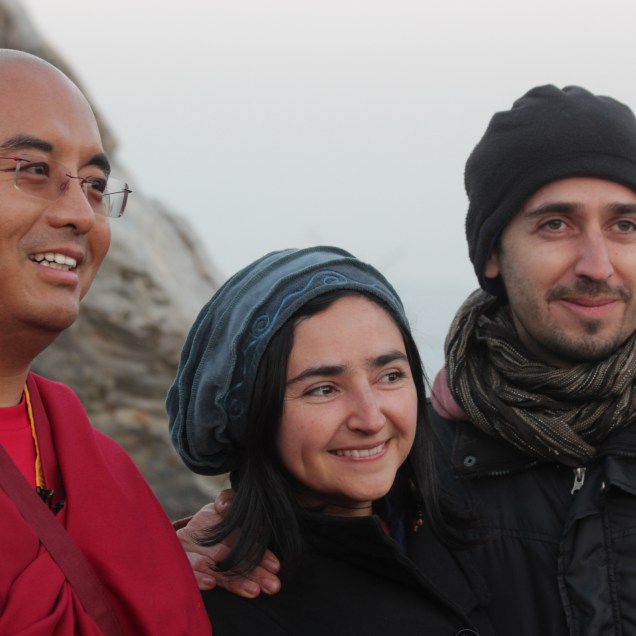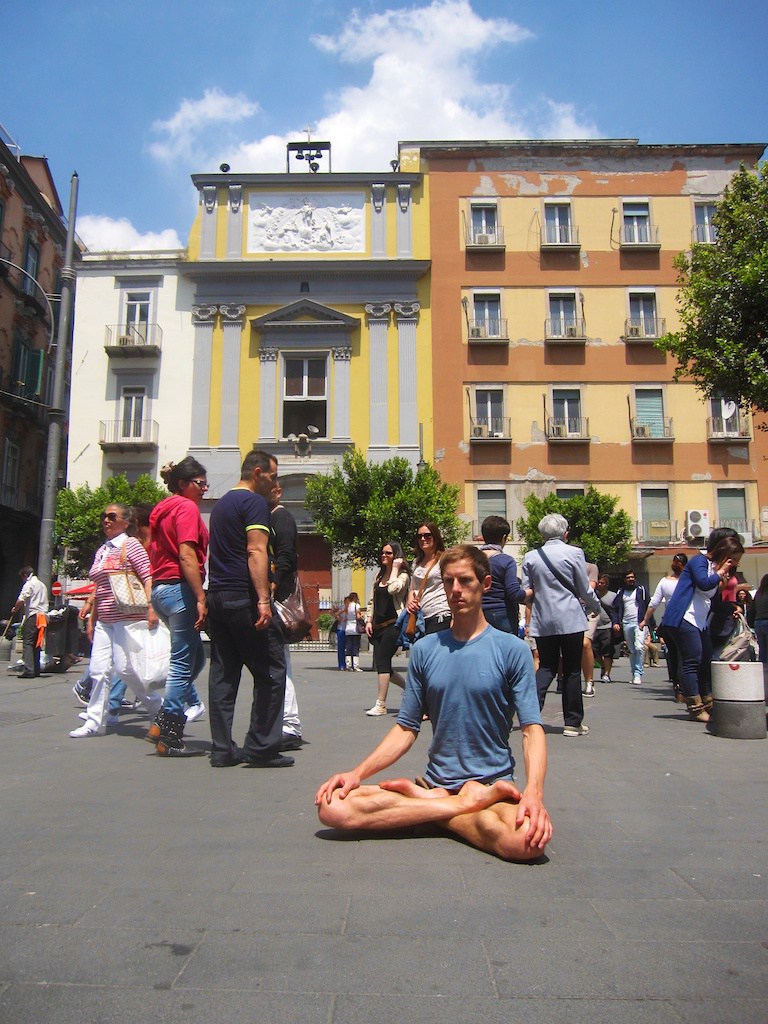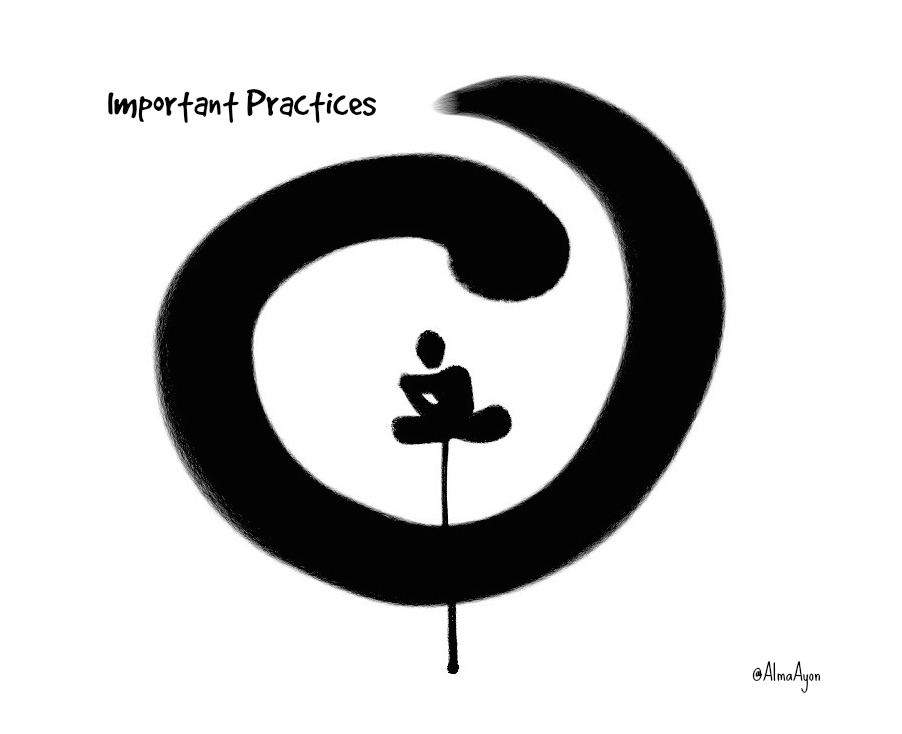by Alma Ayon | Feb 14, 2016 | reflections
There’s no ego it’s just a concept, but often we experience it as a voice within us that constantly complains, judges, evaluates, craves, escapes, desires or rejects. Actually what happens is a constantly arising of thoughts related to these mental afflictions. But if we learn to observe these thoughts without judging them again and evaluating them, we see that they are ephemeral, they arise and pass. As we train the mind to be in the present accepting things as they are, without paying attention to these selfish thoughts, we will start finding freedom and discover an inner wisdom.
It sounds easy, but how to do the habit of not following compulsively our thoughts? On this site I present a number of methods to release our ego-grasping and find peace of mind and emotional balance. I recommend starting with these methods.

We must not fall into the trap of thinking we have an ego and it’s like an enemy that lives within us and we have to attack and eliminate, this only causes suffering. Nor should we try to stop thinking, that’s not the purpose of mental training. We let thoughts arise but we don’t follow them. In the space between one thought and another, there is a space of clarity and silence in which we can rest and from there we can see how a new thought arises in the space of the mind but we don’t follow or believe it. If the thought says “you’re doing it wrong,” “I can’t”, etc. don’t believe him, let it manifest and pass, and stay mindfully present. Rest your mind and your body in its natural state.
Have you experienced what happens when you don’t follow your thoughts?
by Alma Ayon | Feb 11, 2016 | meditations
To help you design a daily practice you can follow this guide.
A formal training session:
Motivation. Start by defining our intention to train our mind.
Divide your session into 3 parts:
1 practice for emotional balance: Compassion, Loving Kindness, Empathy or Equanimity.
1 practice for concentration
1 application of mindfulness
Resting the mind.
Dedication or aspiration
In daily life:
1 ethical practice. Volunteering, generosity, patience, etc.
4 immeasurables (Compassion, Loving Kindness, Empathy and Equanimity), choose the right one and direct it towards every person with whom you interact.
1 Application of mindfulness as we work and do our daily activities.
In the evening do another formal session and a recollection of your actions during the day.
Close with a positive aspiration for the next day.
by Alma Ayon | Feb 9, 2016 | news
I’ve studied with several teachers, Tibetan, Western, Zen, Theravada. In this photo I am with my teacher Chokyi Nyima Rinpoche in Nepal.
My main teacher is Alan Wallace, who is a disciple of the Dalai Lama, from whom I have received teachings too.
Alan is a scientist who studies consciousness and emotions. He was a monk and he’s is one of the great thinkers of our century. The Dalai Lama is my ultimate role model, he is someone full of compassion and love for all beings, it shows when a teacher doesn’t cling to his ego and he is one of the few ones that give us this example.
This is a video of Alan (subtitled in Spanish) where you can see him talking about emotional and mental balance.
http://www.youtube.com/watch?v=oN2bxiq1dgs
Another of my Tibetan teachers, Mingyur Rinpoche

Here with my brother and Mingyur Rinpoche at Volture’s Peak, India.
by Alma Ayon | Feb 8, 2016 | ethics
I would like to share with you the “Thich Nhat Hanh’s 14 precepts” he is a very wise vietnamese zen master.
1. Do not be idolatrous about or bound to any doctrine, theory, or ideology, even Buddhist ones. All systems of thought are guiding means; they are not absolute truth.
2. Do not think that the knowledge you presently possess is changeless, absolute truth. Avoid being narrow-minded and bound to present views. Learn and practice non-attachment from views in order to be open to receive others’ viewpoints. Truth is found in life and not merely in conceptual knowledge. Be ready to learn throughout our entire life and to observe reality in yourself and in the world at all times.
3. Do not force others, including children, by any means whatsoever, to adopt your views, whether by authority, threat, money, propaganda, or even education. However, through compassionate dialogue, help others renounce fanaticism and narrowness.
4. Do not avoid contact with suffering or close your eyes before suffering. Do not lose awareness of the existence of suffering in the life of the world. find ways to be with those who are suffering by all means, including personal contact and visits, images, sound. By such means, awaken yourself and others to the reality of suffering in the world.
5. Do not accumulate wealth while millions are hungry. Do not take as the aim of you life fame, profit, wealth, or sensual pleasure. Live simply and share time, energy, and material resources with those who are in need.
6. Do not maintain anger or hatred. As soon as anger and hatred arise, practice the meditation on compassion in order to deeply understand the persons who have caused anger and hatred. Learn to look at other beings with the eyes of compassion.
7. Do not lose yourself in dispersion and in your surroundings. Learn to practice breathing in order to regain composure of body and mind, to practice mindfulness, and to develop concentration and understanding.
8. Do not utter words that can create discord and cause the community to break. Make every effort to reconcile and resolve all conflicts, however small.
9. Do not say untruthful things for the sake of personal interest of to impress people. Do not utter words that cause diversion and hatred. Do not spread news that you do not know to be certain. Do not criticize or condemn things you are not sure of. Always speak truthfully and constructively. Have the courage to speak out about situations of injustice, even when doing so may threaten your own safety.
10. Do not use the Buddhist community for personal gain or profit, or transform your community into a political party. A religious community should, however, take a clear stand against oppression and injustice, and should strive to change the situation without engaging in partisan conflicts.
11. Do not live with a vocation that is harmful to humans and nature. Do not invest in companies that deprive others of their chance to life. Select a vocation which helps realize your ideal compassion.
12. Do not kill. Do not let others kill. Find whatever means possible to protect life and to prevent war.
13. Possess nothing that should belong to others. Respect the property of others but prevent others from enriching themselves from human suffering or the suffering of other beings.
14. Do not mistreat your body. Learn to handle it with respect. Do not look on your body as only and instrument. Preserve vital energies (sexual, breath, spirit) for the realization of the Way. Sexual expression should not happen without love and commitment. In sexual relationships be aware of future suffering that may be caused. To preserve the happiness of others, respect the rights and commitments of others. Be fully aware of the responsibility of bringing new lives into the world. Meditate on the world into which you are bringing new beings.
At the end the master tells us: “Do not believe that I feel that I follow each and every of these precepts perfectly. I know I fail in many ways. None of us can fully fulfill any of these. However, I must work toward a goal. These are my goal. No words can replace practice, only practice can make the words.”
“The finger pointing at the moon is not the moon.” (more…)
by Alma Ayon | Jan 10, 2016 | emotions, reflections, wisdom
We all seek genuine happiness, but appearances are deceiving and we end up searching where it’s not. Some of us believe that if only we had more money, health, a family, children, power, fame, sensual pleasures, etc., we would be happier. But we don’t realize that all these things are impermanent and lack the ability to give us lasting happiness. The only thing that can give us that happiness is training our mind to:
1. Live an ethical life that benefit those around us.
2. Develop mental calm, presence and single-pointed attention.
3. The cultivation of emotional balance and the development of deep wisdom.

Photo: ©AlmaAyon
Therefore, it is important to be aware of what motivates our actions. To the extent that our motivations focus on ourselves and are selfish, the result will be our suffering, why? If we analyze this, we realize that when we want something for us, we get attached to it and begin to defend ourselves, to compete with others to get it, and once we have it we are afraid that it will be taken or lost, so we take a defensive attitude.
To the extent that our mind attaches to ideas, desires, things, people, situations, etc., and as you feel aversion for all that stand between its desires and their objects, the result will be mental afflictions such as anger, jealousy, selfishness, etc, and an afflicted mind is an unsatisfied unhappy mind.
The Mind is the Source of Happiness
To the extent that we desire fewer things and appreciate what we have, and as we release the attachment and aversion, and dedicate ourselves to cultivate a peaceful mind and emotional balance, to that extent we will find true happiness that doesn’t depend on external stimuli or objects, situations, praise or recognition.
And how do we achieve this? Training our mind gradually. To begin, take a tour of this site, explore and put into practice all the tips, advice and strategies I have shared in previous posts. Also sign up to receive tips and resources on your email.
Your Turn
Do you have any examples that have given you certainty that the mind creates our experience?




